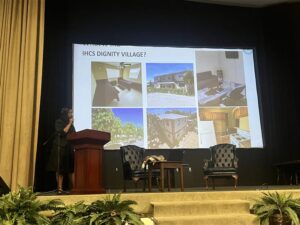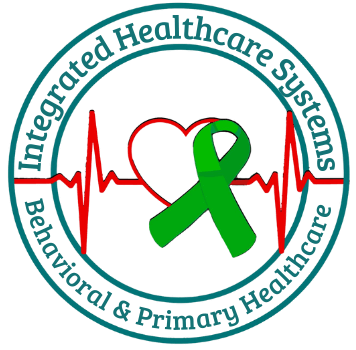The crack and cocaine epidemic left scars that never fully faded. It reshaped communities, families, and futures — and its echoes are still felt today. On September 26–27, 2025, the Drug Abuse Foundation gathered more than fifty community members, advocates, and healthcare leaders for its Recovery Summit, themed “Remembering the Harm, Restoring What Was Lost.”
For Integrated Healthcare System (IHCS), the event was more than a reminder of history. It was a call to action — to confront the long shadow of addiction and rebuild systems of care rooted in compassion, stability, and dignity.
Facing the Past with Purpose

Day 1 of the summit opened with reflection. Presentations explored how the epidemic’s policies and health disparities continue to shape today’s addiction landscape. Speakers like Dr. James Green and Genesis Health laid the foundation with sobering truths about the ongoing medical and social toll.
Then came Dr. Moe — who presented “The Lasting Home and Environmental Impact of the Crack Epidemic.” Her message was simple but powerful: recovery cannot thrive without stability.
“Healing needs roots,” Dr. Moe shared. “If someone doesn’t have a safe home, access to care, or people who believe in them, the cycle continues.”
Her words reframed addiction not as a personal failure but as a community issue — one that demands housing, healthcare, and human connection.
Learning from the Epidemic’s Legacy
The summit’s agenda carried a thorough line of accountability and renewal. Sessions like “Breaking the Cycle: Crack vs. Opioid Epidemic Response” and “Pathways, Not Prisons” in Recovery Summit examined how past approaches to drug use — built on punishment rather than prevention — deepened harm.
At IHCS, we see those same lessons daily. Substance use disorders don’t just harm the body; they disrupt housing, relationships, and opportunity. That’s why our model integrates behavioral health, medical care, and housing support — treating recovery as a whole-person journey.
We believe that when care is accessible and compassionate, recovery becomes possible for everyone.
Restoring What Was Lost in Recovery Summit
On the second day, the theme shifted toward renewal. Community leaders, youth advocates, and providers came together for the “We Are the System Now” panel and Action Design Labs led by Dr. Ashley Ridley and Dr. Precious Skinner-Osei. These sessions challenged participants to design practical, community-led solutions — the kind that turn empathy into action.
It was a moment of clarity: recovery doesn’t just belong in clinics. It belongs in homes, schools, neighborhoods, and every space where people seek belonging.
IHCS’s Ongoing Fight
The crack/cocaine epidemic may belong to the past, but the work of healing is ongoing. IHCS continues to bridge the gaps it exposed — connecting individuals to housing, recovery programs, and wraparound care that honor the dignity of every person.
Our fight against addiction focuses on:
- Primary Care – treating behavioral, medical, and social needs together.
- Housing Stability – ensuring safety and permanence as the foundation for recovery.
- Community Empowerment – training leaders, families, and peers to become part of the healing system.
- Education and Advocacy – changing the narrative from stigma to understanding.
A Hopeful Future
The Recovery Summit ended not with closure, but with conviction. Every story shared, every idea exchanged carried the same truth: recovery is possible when we choose compassion over judgment, care over punishment, and unity over silence.
IHCS stands with every person, family, and organization still working to undo the harm of addiction — because healing is not just a goal; it’s a shared responsibility.
Join us in this mission:
- Donate – Help expand IHCS programs that provide housing, healthcare, and hope.
- Refer someone – Connect individuals to integrated, stigma-free recovery services.
- Spread awareness – Talk about the realities of addiction and the power of healing.
Together, we can honor the past and build a future where every person has the chance to recover, rebuild, and belong.






